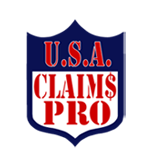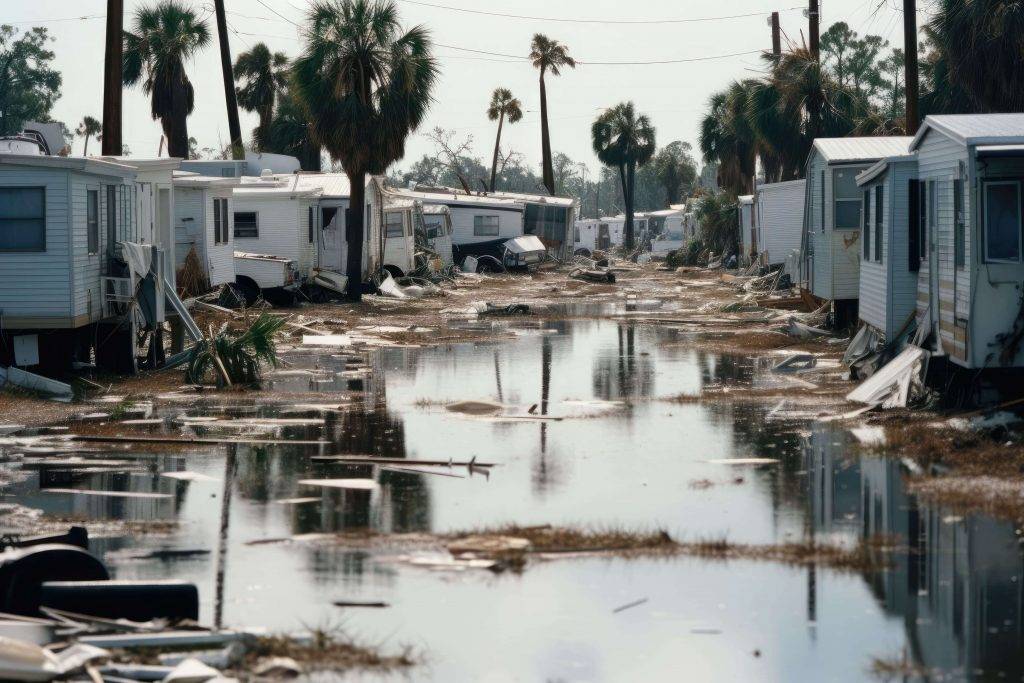Hurricane Idalia made landfall onto Florida as a Category 3 hurricane, unleashing massive storm surges with it. This area of Florida (also known as the Big Bend) has not sustained a direct hit from a hurricane in over one-hundred years.
Cedar Key was hit with an almost seven-foot storm surge on Wednesday morning. Areas along the West Coast, including Tampa and St. Petersburg, Sarasota County and Manatee County, also experienced flooding from this event; videos show flooded bridges and cars floating in water while residents wade through knee-high water levels.
Florida residents may expect their insurance providers to help them recover from such a devastating situation, but in reality, their primary goal is their bottom line rather than their well-being.
ClaimsPro USA understands the unique challenges you are facing and have help residents and business owners through several hurricanes around the State of Florida. Our Florida hurricane damage claims adjusters have extensive experience helping storm victims manage their insurance claims effectively.
How should I react if my home or apartment has been flooded?
Mark Friedlander of the Insurance Information Institute advises you to immediately document any damage with photographs and videos before filing a claim with your insurer.
Flood insurance is the only product available that covers flood damage for rental properties, condominiums and homes, typically offered through either private companies or the National Flood Insurance Program. You may be able to add this as an add-on rider in your existing policy as well.
FEMA requires your flood insurance policy number and all paperwork. FEMA.gov contains information on filing claims, documenting damages, working with your adjuster from your flood insurance, making repairs, understanding your claim payments and understanding how they work. If you require further help regarding who your insurance company or agent is filing claims or require general information, contact ClaimsPro USA immediately!
Prioritize safety first when making decisions in your home or apartment.
What Coverage Is Available After Hurricane Idalia
Understanding what’s covered under your insurance policy can help set expectations and guide the next steps. Florida residents should understand their coverage as hurricane season poses an annual threat that impacts vehicles and properties. Here are a few key points:
Fundamentals of Homeowners’ Insurance: Liabilities and Coverage
Your homeowner’s policy may cover damages caused by Hurricane Idalia. It is essential to review all documents related to your coverage; each policy differs, and there may be specific details applicable to you. Florida homeowners’ policies often do not cover damage caused by storm surges and flooding; you will, therefore, be required to purchase separate flood insurance for flood damage claims.
Contact your insurance provider if you are uncertain of whether your policy covers damage to property or need help understanding what coverage exists. Our Hurricane Idalia property claims adjusters can determine whether damage coverage exists within your policy.
What damage coverage options exist for residential and commercial damage?
Home and commercial insurance policies cover various damages but may contain limitations and exclusions that could have an adverse impact on your claim.
Here is an overview of what is and is not covered by residential and commercial insurance policies to help set realistic expectations.
What Is Covered by Homeowner Insurance Policies?
- Structural Damage: Most homeowner policies provide coverage for structural damages to your home caused by strong winds.
- Personal Property: Your personal belongings typically fall within this coverage; however, there may be restrictions or exclusions.
- Temporary Relocation: Most policies provide coverage for temporary housing costs and living expenses in the event that your home becomes inhabitable.
What’s Not Covered by Homeowner Insurance Policies?
Unfortunately, homeowners’ insurance does not usually provide protection for storm surges or flood damage incurred during an event such as an intense rainfall storm; in order to cover these events, you would require a separate flood insurance policy.
- Landscaping: Damage caused to gardens, yards or detached structures is not covered.
- Deductibles: Most policies require you to pay a deductible before your coverage can take effect.
What Is Covered by Commercial Insurance Policies?
- Damage to property: Most insurance policies cover damage to buildings and structures attached, while business interruption claims usually apply in cases caused by hurricanes.
- Liability Protection: Your liability should be protected if anyone becomes injured on your property due to hurricane conditions.
What Is Not Covered by Commercial Insurance Policies?
- Flood Damage: Commercial policies typically do not provide flood coverage like residential policies do.
- Specialized Equipment: High-value and specialized equipment may require that additional riders are covered, while damage to infrastructure that connects your business (roads or bridges) may not.
Understanding these fundamental principles will assist in filing a hurricane insurance claim to cover damages from Hurricane Idalia. An experienced Hurricane insurance claims adjuster may prove particularly valuable due to the complexity of insurance contracts and the likelihood that claims may be denied or underpaid.
How to File a Claim for Hurricane Idalia Property Damage Claims?
After experiencing the devastation caused by Hurricane Idalia, you don’t want to waste time fighting with your insurance company for fair compensation for your damage. Unfortunately, not all policies meet their obligations towards their policyholders.
If you find yourself in an unpleasant circumstance, take these steps and use these strategies:
- Act Swiftly
Don’t allow Hurricane Idalia’s chaos and hardships to prevent you from filing your hurricane insurance claim as soon as possible – waiting could prove detrimental, compounding an already stressful situation further.
- Document Everything
As part of any process to address underpayment or even denial of insurance coverage, document everything. This is the starting point in dealing with potential problems that might arise in regard to unfair settlement or denial. Keep all correspondence with insurance companies – such as emails, letters and call logs – that relates to their legal case in one central place. This paper trail can support your case.
- Review Your Policy
Review your policy thoroughly so you understand its coverage, any limitations or exclusions, any appeals procedures and the dispute settlement clauses of your insurance policy.
- Hire a public claims adjuster.
If you feel your settlement amount is not as per the expectation or your claim has been denied, hiring a public claim adjuster like ClaimsPro USA could provide valuable insight. It is vital to have an experienced public claims adjuster familiar with Hurricane Idalia when filing property damage claims in Florida. ClaimsPro USA’s public insurance adjusters will assess your case and guide you through the entire claim process.
Why is it necessary to consult an Idalia hurricane claim adjuster?
Rebuilding after a storm can present many complex challenges, from personal losses to property damage. A public claim adjuster with experience handling hurricane-related claims can be invaluable in helping navigate through this process.
Here are a few reasons why it may be wise to consult a hurricane damage claims adjuster regarding Hurricane Idalia:
- Insurance policies can be filled with legal jargon that’s difficult to interpret for the average person, making understanding what your rights and entitlements are difficult. A public adjuster with experience can assist in unraveling its intricate details so that you understand exactly which claims can be filed on behalf of you and your family.
- Insurance companies operate in order to reduce payouts as much as possible; their staff of experts is dedicated to this goal, so having legal assistance on board could increase your recovery significantly.
- Documentation must be presented as evidence in support of your claim, such as damage photographs and expert appraisals. An expert insurance adjuster can guide you through this process and ensure all pertinent data is compiled, organized and submitted on time.
- ClaimsPro USA will get paid only if you get paid from your insurer, thus limiting risk and incentivizing them to achieve optimal results.
- Our public adjusting firm’s adjusters will manage every aspect of your case, from initial consultation through final negotiation. This allows you to focus solely on recovery and rebuilding while we handle communications paperwork and represent your interests in any legal setting.
- Experienced insurance adjusters in Florida handling hurricane damage claims will possess a deep knowledge of local laws and regulations, which is especially helpful when identifying state and federal laws that might apply in natural disaster scenarios.
- Hiring a public claims adjuster to represent your Hurricane Idalia damage claim can bring great peace of mind, helping ease an often stressful process.
Reach out today for a complimentary Hurricane Idalia case evaluation.
ClaimsPro USA provides free case evaluation services to assist victims of Hurricane Idalia as they begin the road back. Our expert public adjusters are easily accessible thanks to our streamlined appointment process and can assess property damage as well as review insurance policies in a confidential environment.
At ClaimsPro USA, we understand the difficulties presented by hurricanes can make meeting in person more challenging, so we offer remote consultations via phone or video conferencing.
Contact us immediately and request your Free Consultation!

